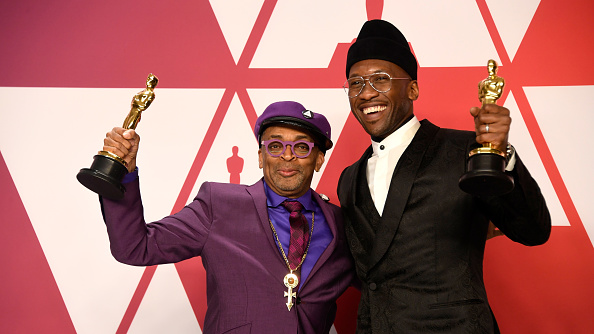During a recent appearance on Neal Brennan’s How I Feel Podcast, actor and comedian Chris Rock blasted Civil Rights movies because “they make racism look very fixable.” He then said, “I hate all Civil Rights movies…Don’t get me wrong, I applaud the effort and they should exist.”
Rock outlined that the issue in these films is that there is a necessary level of grittiness and truth that is lacking because they “only show the back of the bus and the lunch counter.” Rock talked about these films sanitizing the truth, and keeping the gritty reality from the viewers. “My mother used to get her teeth taken out at the vet because you weren’t allowed to go to the dentist. No movie shows you that.”
Are Civil Rights Films a Problem?
Civil Rights movies have long been celebrated as a genre that brings awareness and knowledge about race relations. Rock raised an intriguing point on the potential cultural value of these films. Perhaps they are not valuable teaching tools that will help improve race relations after all. What if, instead, these films are damaging to the Civil Rights movement as a whole?
Rock did not name any specific films in the interview, but the first example that he brings to mind is the now infamous 2018 Academy Award Best Picture winner, Green Book. This movie is a clear example of the Civil Rights movie tropes that Rock describes. It greatly oversimplifies the complexity of racism in America. The film gives cliché, easily resolved, surface-level examples of problems. It favors a digestible way of storytelling that glosses over the much harsher realities.
Green Book belongs to an entire genre of Civil rights films that grossly simplify and misrepresent racial conflict. The list of such films includes The Blind Side, Driving Miss Daisy, and the recent horror-thriller, Antebellum. Antebellum has received much heat for its hollow portrayal of Antebellum era America. Angelica Jade Bastién for The Vulture said, “It’s worthwhile to explore the pain and grit of moving through America while being Black, but that exploration shouldn’t come at the expense of the humanity of the characters.” The movie hollowed out the Black experience and ignored the complex reality of race relations in favor of simplicity.
Spike Lee: Savior of the Genre
But perhaps Rock went too far with his criticism of dismissing all Civil Rights films as problematic. A filmmaker such as Spike Lee, for example, has spent his entire career avoiding the tropes that Rock talked about. Do the Right Thing remains among the most important movies about race ever made. Every scene is a layered exploration of race relations. The film reveals their true tangled state and refuses to resolve them in the end, leaving viewers in awe.
His most recent movie BlacKkKlansman features one of the most powerful endings in recent memory. Lee ends the movie with a montage from the Charlottesville attacks, reminding his viewers that the issues of the film are not a resolved aspect of the past, but plague our world to this day. The films of Lee do not provide answers to the questions that they expose. Instead, they force the viewers to reflect back on their own understandings and assumptions about the conflicts.
Is There Widespread Positive Change in the Genre?
In recent years, a number of filmmakers have followed Spike Lee’s example and have attempted to create movies that explore the intricacies of Black experiences. Jordan Peele burst onto the scene with his directorial debut, Get Out. The film used the horror genre to masterfully delve into the complexities and issues of modern-day race relations. Barry Jenkins‘ two features, Moonlight and If Beale Street Could Talk, have received much critical acclaim. The two movies offered emotional glimpses into the lives of black men and showed the reality of their worlds. In the case of the former, Jenkins even showed the life of a Black member of the LGBT community which is underrepresented in media portrayals.
Is Chris Rock right? Are Civil Rights films a problematic genre which do not go far enough in their portrayal of reality? Or is he generalizing the genre and ignoring the work of a number of filmmakers such as Spike Lee, Jordan Peele, and Barry Jenkins, who have shown the deep complexities of racial divides? The answer is not simple and falls somewhere in between. Chris Rock’s argument, however, is an important reminder to be critical of superficial generalizing portrayals of race relations.
Main Image:
Embed from Getty Images

